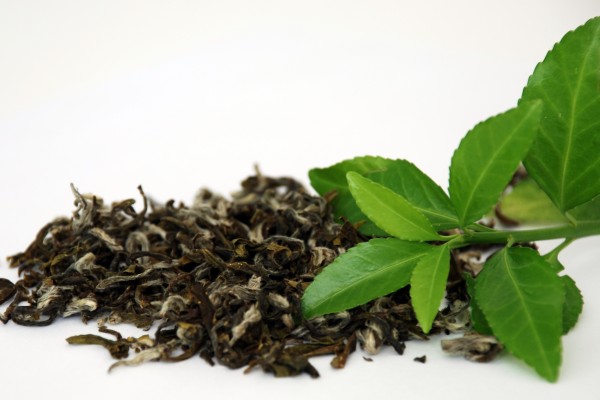GREEN TEA AND DOWN SYNDROME: NEW HOPES
Down Syndromeleaveoxidative stressscientific researchtumor
The power of scientific research opens up to new possibilities …
The epigallocatechin-3-gallate (Egcg, abbreviated), is a molecule contained within the leaves of Green Tea, which could give new hopes to those affected by Down Syndrome but also to cancer patients.
Although the cause of the Down Syndrome has been identified as the presence of a third pair of chromosome 21, scientific research has not yet identified all the molecular mechanisms through which this genetic alteration determines the set of signs and symptoms of the disease. What is known is that Down Syndrome, but also cancer, causes in patients an increase in oxidative stress and an impairment of mitochondrial function, which are determining factors for the onset of cognitive deficits.
And it is just a simple molecule of natural origin that opens up new possibilities for scientific research.
The new hopes are born in Italy, where a group of researchers from the Institute of Biomembranes and Bioenergetics of the National Research Council of Bari (Ibbe-Cnr), has studied the effects of Epigallocatechin-3-gallate on the isolated tissues of Down subjects.
It has been observed that the molecule, extracted from Green Tea, is able to counteract oxidative stress and increase the number of mitochondria, with a return to functionality similar to that of healthy cells.
These effects are of fundamental importance as they would alleviate the degenerative effects of Down Syndrome.
As the researchers explain, mitochondria represent the “energy center” of cells and are fundamental structures for their correct functionality and for the carrying out of innumerable cellular processes. The study was conducted by taking tissues from healthy subjects and those suffering from Down Syndrome. Even on healthy subjects, epigallocatechin-3-gallate showed positive effects on mitochondrial genesis (increase in the number of mitochondria).
This molecule, already known, among other things for its anti-inflammatory properties and also identified in other plant species (for example in the Fennel), has already been tested on man, for its effects on tumors.
From the studies carried out, several actions have been highlighted, among which the blocking of carcinogenesis and therefore of the proliferation of tumor cells.
The study carried out by the Bari researchers, published in the “Biochimica et Biophysica Acta-Molecular Basis of Disease” journal, could have relevant clinical applications in the near future.
The discovery of the efficacy of Egcg in counteracting the degenerations caused by oxidative stress and mitochondrial impairment, could be useful to mitigate the onset of some serious clinical manifestations of Down Syndrome and tumors. This molecule, certainly does not promise miracles, but it could help improve the lives of patients.
Other articles that may interest you:
Onion and scientific research: a new natural healing
Sedum telephium: the livelong flower, powerful natural healing
Citrus fruits and Alzheimer’s disease: new discoveries
 ESSENTIAL OILS: WELLNESS IN HOME
ESSENTIAL OILS: WELLNESS IN HOME THYME ESSENTIAL OIL: USES AND PROPERTIES
THYME ESSENTIAL OIL: USES AND PROPERTIES AROMATHERAPY: HOW TO CHOOSE AN ESSENTIAL OIL
AROMATHERAPY: HOW TO CHOOSE AN ESSENTIAL OIL HOW TO DISTILL MINT
HOW TO DISTILL MINT AROMATHERAPY: HISTORY
AROMATHERAPY: HISTORY POTATO CHIPS WITH ROSEMARY AROMATIC WATER
POTATO CHIPS WITH ROSEMARY AROMATIC WATER ROSEMARY ESSENTIAL OIL: CULTIVATION AND PRODUCTION
ROSEMARY ESSENTIAL OIL: CULTIVATION AND PRODUCTION HOW TO DISTILL ROSEMARY
HOW TO DISTILL ROSEMARY HOW TO DISTILL TANGERINE PEEL
HOW TO DISTILL TANGERINE PEEL NEEM OIL, FROM THE PLANT OF GOOD HEALTH
NEEM OIL, FROM THE PLANT OF GOOD HEALTH HERBAL TEAS, INFUSIONS AND DECOCTIONS: THE DIFFERENCES AND METHODS OF PREPARATION
HERBAL TEAS, INFUSIONS AND DECOCTIONS: THE DIFFERENCES AND METHODS OF PREPARATION HOW TO MAKE HOMEMADE ESSENTIAL OILS
HOW TO MAKE HOMEMADE ESSENTIAL OILS HEALTHY HAIR WITH AROMATIC PLANTS
HEALTHY HAIR WITH AROMATIC PLANTS THE GOOD NIGHT PLANTS
THE GOOD NIGHT PLANTS OLEOLITES: THE POWER OF HERBS IN OIL
OLEOLITES: THE POWER OF HERBS IN OIL ENFLEURAGE: ANCIENT TECHNIQUE TO EXTRACT ESSENCES FROM FLOWER PETALS
ENFLEURAGE: ANCIENT TECHNIQUE TO EXTRACT ESSENCES FROM FLOWER PETALS ESSENTIAL OILS AND ECOLOGICAL DETERGENTS FOR HOUSE CLEANING
ESSENTIAL OILS AND ECOLOGICAL DETERGENTS FOR HOUSE CLEANING OIL FOR STRENGTHENING HAIR
OIL FOR STRENGTHENING HAIR SCENTED BAGS WITH DRIED HERBS AND ESSENTIAL OILS
SCENTED BAGS WITH DRIED HERBS AND ESSENTIAL OILS PURIFYING AND CLEANSING HERBAL TEAS DO-IT-YOURSELF
PURIFYING AND CLEANSING HERBAL TEAS DO-IT-YOURSELF LEMONGRASS: ESSENTIAL OIL TO FIGHT TUMORS
LEMONGRASS: ESSENTIAL OIL TO FIGHT TUMORS MINT ESSENTIAL OIL: CULTIVATION AND PRODUCTION
MINT ESSENTIAL OIL: CULTIVATION AND PRODUCTION CITRUS FRUITS AND ALZHEIMER’S DISEASE: NEW DISCOVERIES
CITRUS FRUITS AND ALZHEIMER’S DISEASE: NEW DISCOVERIES MINT ESSENTIAL OIL: USES AND PROPERTIES
MINT ESSENTIAL OIL: USES AND PROPERTIES



